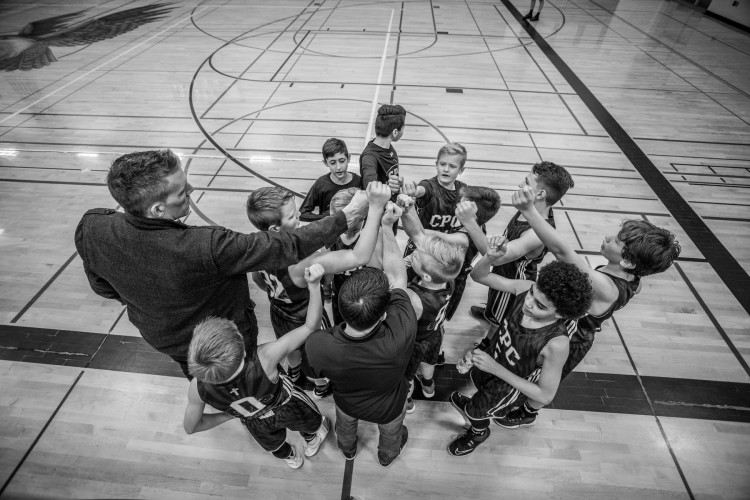
Some recent studies have pointed toward best practices when working with youth in foster care, including facilitating supportive relationships with mentors, program staff, and caring family members. One of the ways to do this organically is to enlist supportive adults who are already a part of the young person’s life; another is to “scaffold” supportive relationships through formal mentoring programs. However, youth impacted by the foster care system often struggle to build positive relationships because of the trauma they have endured.
A new study reinforces the notion that mentoring programs that work with youth in foster care must provide more intensive services than programs that do not focus on youth in foster care. The My Life program works with youth in foster care to improve their self-determination and goal achievement. Researchers examined data from the program and introduced a post-program follow-up to determine what impact the program had on involvement with the criminal justice system. What they found was promising: Two years after the program ended, program participants were half as likely to have had involvement with the criminal justice system than non-participants (10.7% to 19.3%). The effect was more significant among males, with only 6.6% of participants having system involvement compared to 29.3% in the control group. The program uses weekly structured individual and group mentoring activities centered around goal-setting and problem-solving, receiving an average of about 100 direct mentoring and indirect service hours over the course of 12 months.
The implications of this point again to the idea of embedded mentoring, or multicomponent mentoring. The concept of embedded mentoring is that youth don’t live in a vacuum, so neither should the programs that serve them. The idea is nothing new: Wraparound services, or one-stop centers, have long been the focus of the youth-serving field. Somehow, though, mentoring programs have lingered on the outside of this model, often a service that is referred to by comprehensive youth service programs but not quite part of the fold. When working with youth who have survived trauma, this needs to end.
One reason we need to make this shift is that youth who have experienced trauma, as many in the foster care system have, struggle to establish the kind of trusting relationships that make mentoring so powerful. To serve these young people effectively, we need to help them learn how to trust, how to interact, and how to maintain relationships that can be transformative.
A recently-concluded research project conducted by the YMCA of San Diego County’s Connections Project, funded by the Administration for Children and Families, Children’s Bureau, worked with transition-aged youth in foster care to build these skills to increase their relational competencies. Self-regulation requires skills such as being able to organize one’s thoughts, set goals, and connect with and participate in a reciprocal relationship with another human being. Connections consists of one-on-one coaching, relational wellness classes facilitated by a peer coach, and barrier removal and support in crisis situations and are designed to help youth successfully transition to self-sufficiency and well-being.
The results are impressive: According to the final report, after 12 months of participation in one-on-one coaching and relational wellness classes in the Connections Project, participants saw an increase in social conduct, emotional regulation, self-esteem, and resiliency. There was a decrease in risky behaviors and activities, a 25% increase in employment, and $1.37 increase in hourly wage after 12 months, on average. Krysta Esquivel, Associate Executive Director at the YMCA of San Diego Youth and Family Services, who oversees the Connections Project, attributes much of the success to an approach developed to enhance relationships between staff and clients. Early in the project period, staff realized that having strong relationships with peer coaches motivated youth to participate, and yielded greater program benefits. Based on this observation, the Connections team developed a model they call the C.A.V.E. Approach (which stands for Compassion, Awareness, Validation, and Empowerment). C.A.V.E. is based on Dialectical Behavior Therapy, Motivational Interviewing, and Harm Reduction. All staff are trained on the model, which is built around strengthening connections for youth in foster care.

While the Connections study did not include formal mentoring, supportive relationships were an important part of the work that Connections staff did. The C.A.V.E. approach allowed program coaches and staff to build positive relationships with the youth they serve, and was also a vehicle for teaching those young people about building their own relationships. The results show that having access to this type of skill-building, intensive support can make a huge difference in the life of a young person at risk.
“Transition-aged youth are experiencing profound brain development, and we have an opportunity to do great work,” Esquivel says. “If we can teach youth [who have been trauma-impacted] to regulate their thoughts, feelings, and behaviors, they can do anything they want. When relationships are warm and responsive, it can literally change a person’s brain.”
Mentoring programs can’t be expected to transform into the kind of intensive program that Connections is, though, which is why it’s imperative to identify resources that can provide intensive services, and partner with them to provide seamless programs for youth impacted by trauma. By linking with a program like Connections to provide, perhaps, weekly groups or individual coaching – in addition to the mentoring relationship – mentoring programs can help youth in foster care build relational skills that will last a lifetime.
“The most important part for us as service providers is [sharing] the knowledge and skills necessary for young people to identify and maintain relationships,” Esquivel says. “Self-regulation skills are the foundation for life-long success.” In a brief summarizing the research project, Esquivel and her colleague Kristina Gillan, LMFT, explain the C.A.V.E. Approach and recommend that all staff be trained on the model to encourage them to think through interactions with clients in order to build stronger, more impactful relationships.
And while mentors cannot be expected to act as clinicians or counselors, in programs where youth at high risk are served Esquivel does recommend training mentors on C.A.V.E. or a similar approach, as well as on trauma- and neuro-informed practices around physiological, psychological, and developmental situations that youth in foster care often face. In addition, these mentors need to understand that the duration and intensity needed for a relationship to benefit a youth in foster care are greater than in mentoring relationships with youth not involved in the foster care system. “If these relationships are going to be meaningful,” she cautions, “mentors need to be prepared to be in it for the long haul.”
It's not surprising that mentor training, always a critical element of a quality program, is even more important for mentors working with youth in the foster care system. Another module in this toolkit explores how to train mentors to work with youth in the foster care system.
This toolkit was co-authored by Dana Goodrow. To access other modules in this toolkit, see the Related section below.




